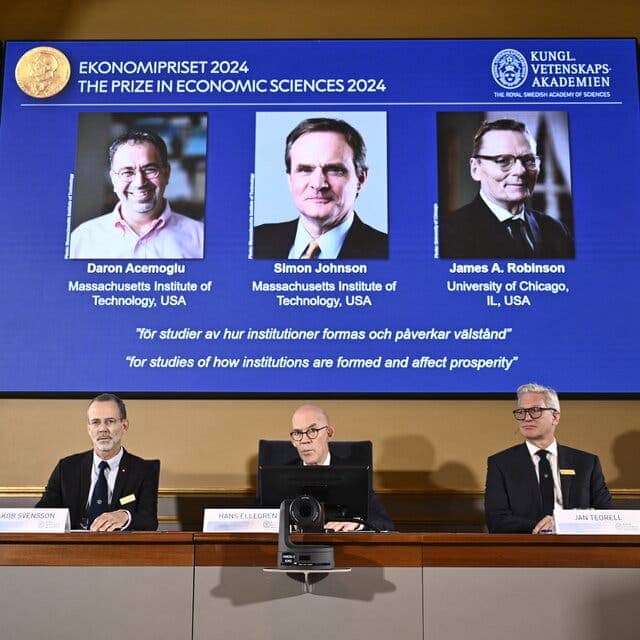Three Receive Nobel in Economics for Research on Global Inequality

Faiza Idrees
The Nobel Memorial Prize in Economic Sciences was awarded on Monday to Daron Acemoglu and Simon Johnson, both of the Massachusetts Institute of Technology, and to James Robinson of the University of Chicago.
They received the prize for their work on the gaps in prosperity between nations, and for their research on how institutions affect economic progress.
The laureates used both theory and data to better explain inequality between countries, according to the prize committee.
“Reducing the vast differences in income between countries is one of our time’s greatest challenges,” Jakob Svensson, chairman of the economics prize committee, said in a statement. “The laureates have demonstrated the importance of societal institutions for achieving this.”
Their research has shown that the institutions that were introduced during European colonization have helped to shape economic outcomes in the once-colonized countries.
“Rather than asking whether colonialism is good or bad, we note that different colonial strategies have led to different institutional patterns that have persisted over time,” Dr. Acemoglu said during a news conference after the prize was announced.
Their findings suggest that inclusive institutions tend to put countries on a pathway to longer-term prosperity, while extractive ones — designed to retain control — provide short-term gains for the people in power.
“Broadly speaking, the work that we have done favors democracy,” Dr. Acemoglu said. “But democracy is not a panacea.”
Democracy can be hard to introduce, he noted, and there are pathways to growth for countries that are not democracies, including rapidly tapping a nation’s resources to ramp up economic progress. But he said that “more authoritarian growth” is often more unstable and less innovative.
The laureates found that colonization brought about a major change in global fortunes. Places that were densely populated at the time of colonization tended to be lorded over by authoritarian institutions, while those that were sparsely populated often saw more settlers and established a more inclusive form of governance — if not quite a democratic one.
Over time, that led to a reversal of fortunes: While the Aztec empire was more populous and rich than North America at the time of early European exploration, today the United States and Canada have outstripped Mexico in prosperity.
“This reversal of relative prosperity is historically unique,” the Nobel release explained. “If we look at the parts of the globe that were not colonized, we do not find any reversal of fortune.”
